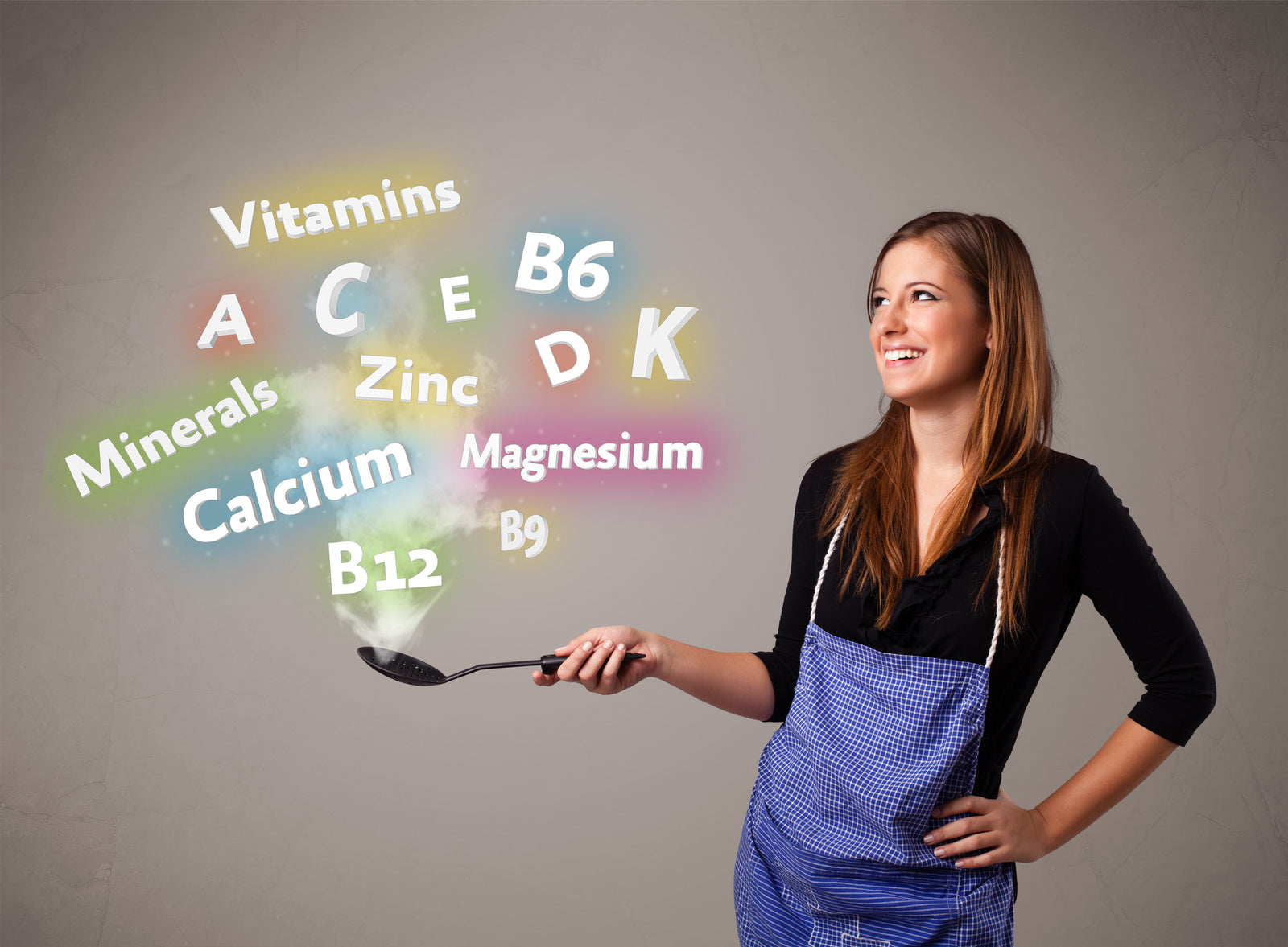Are you feeling tired on a regular basis? Then perhaps you aren't getting the necessary minerals for energy you need. Here are the most energizing minerals.
Feeling tired and fatigued? Have a hard time waking up in the morning and focusing at work? Mineral deficiencies might be the culprit.
Let's take magnesium, for instance. This mineral regulates over 300 biochemical reactions in the body, including blood pressure and muscle function. Even the slightest deficiency can affect your energy levels and overall health.
About 27 percent of Americans wake up tired on four or more days per week. Another 45 percent experience this feeling up to three times a week. What's surprising is that these people sleep seven to eight hours a night, which is enough for an adult.
Many times, low energy is the result of nutrient deficiencies. Your body needs optimum doses of vitamins and minerals to function at its peak.
Ready to tweak your diet? Let's find out more about the best minerals for energy!
The Role of Minerals in Energy Metabolism
Dietary nutrients serve as fuel for your body. After ingestion, they're broken down in the GI tract. Next, they are processed and then stored in the liver, kidneys, brain, and other tissues.
Your body converts that energy into ATP (adenosine triphosphate). This molecule acts as a battery that stores and releases energy when needed.
A balanced diet should provide optimum amounts of micro and macronutrients. Vitamins, minerals, and antioxidants are called micronutrients because your body needs them in small doses. Protein, carbs, and fats, the three macronutrients, are required in large amounts.
Minerals play a key role in energy metabolism. Young adults, especially those who are physically active and engage in regular dieting, are more likely to develop deficiencies. Their daily meals fail to provide these nutrients, which leads to fatigue, lethargy, and tiredness.
Chromium, for example, regulates insulin signaling. Basically, it helps your body use insulin efficiently. A diet that's low in chromium will lead to insulin and blood sugar fluctuations, affecting your energy levels.
The modern diet fails to provide the nutrients needed for good health. Most foods are highly processed or lose their nutritional value during storage and transportation. Plus, we don't have the time to cook balanced meals.
These factors lead to vitamin and mineral deficiencies. Sleep deprivation and stress only make things worse. At the end of the day, we're feeling tired and worn out.
The best way to restore your energy and stamina is to make simple lifestyle changes.
Start with your diet, which has the biggest impact on your health and well-being. Consume these minerals for energy, vitality, and improved mental focus:
Magnesium
This mineral contributes to nearly every function in the human body. Also, it's required by all enzymatic reactions that involve ATP.
A diet rich in magnesium will keep your immune system strong, ensure optimal nerve function, and support cardiovascular health. On top of that, you'll have more energy and enjoy a better night's sleep.
To increase your magnesium intake, eat more nuts, whole grains, legumes, and leafy greens. Bananas, avocados, and seeds are rich in this nutrient too.
Chromium
Chromium promotes glucose uptake by the body's cells. As a result, it boosts your energy and improves insulin response. The more active you are, the more chromium you need in your diet.
This mineral also curbs sugar cravings and regulates appetite. That's why it's often added to weight loss supplements and appetite suppressants. It can be found in Brazil nuts, pears, oysters, mussels, eggs, and shellfish.
Iron
Iron plays a vital role in ATP synthesis, red blood cell formation, and oxygen transport. About 70 percent of it is stored in the muscle cells and hemoglobin.
Your body needs this mineral to produce red blood cells and convert glucose into energy. Thus, even the slightest deficiency can affect circulation, metabolism, and energy levels.
If your diet is low in iron, you may develop anemia. Other side effects include bleeding, fatigue, tiredness, and shortness of breath.
Iron deficiency may also cause migraines and headaches. Since this mineral helps transport oxygen throughout the body, low-iron diets can affect cardiovascular health.
Luckily, most foods contain adequate amounts of iron. Leafy greens, cruciferous vegetables, potatoes, fish, and red meat are all excellent sources.
Zinc
This nutrient is an essential part of over 100 enzymes, many of which regulate energy metabolism. It plays a key role in immune function, brain function, fertility, and gene expression.
Zinc also contributes to cell signaling. It's one of the most important minerals for energy, growth, and protein synthesis. Plus, it helps your body metabolize fats and carbs.
If your diet doesn't provide enough zinc, you may experience the following problems:
- Impaired immune function
- Mental lethargy
- Slow wound healing
- Unexplained weight loss
- Eye and skin diseases
- Infertility
- Loss of appetite
- Fatigue and tiredness
To get more of this mineral, consume plenty of nuts, seeds, beans, and oysters. Crab, chickpeas, beef, oatmeal, and chicken breast contain zinc too, so add them to your meals.
Manganese
Manganese is one of the key minerals for energy because it regulates glucogenesis. This means it helps your body produce glycogen, its main source of fuel.
When your glycogen stores are low, you may feel tired and low on energy. You'll have a hard time recovering from exercise and staying active.
This mineral also contributes to the formation of connective tissues, sex hormones, and bones. Additionally, it's required for nerve and brain function.
Make sure your diet provides adequate doses of manganese. Consume more almonds, pecans, peanuts, pineapple, beans, and cooked spinach. Brown rice and sweet potatoes are good sources too.
Get the Best Minerals for Energy and Stamina
Now that you know what it takes to boost your energy, give your diet a makeover. Eat whole, natural foods and ditch the junk.
Dietary supplements can help too. Depending on your preferences, get them in powder, capsule, or liquid form. Their role is to prevent nutrient deficiencies and keep your body functioning at its peak.
For quality vitamins, minerals, and superfood formulas, check out our online store! We provide cutting-edge supplements for detox, weight loss, better sleep, and more.


